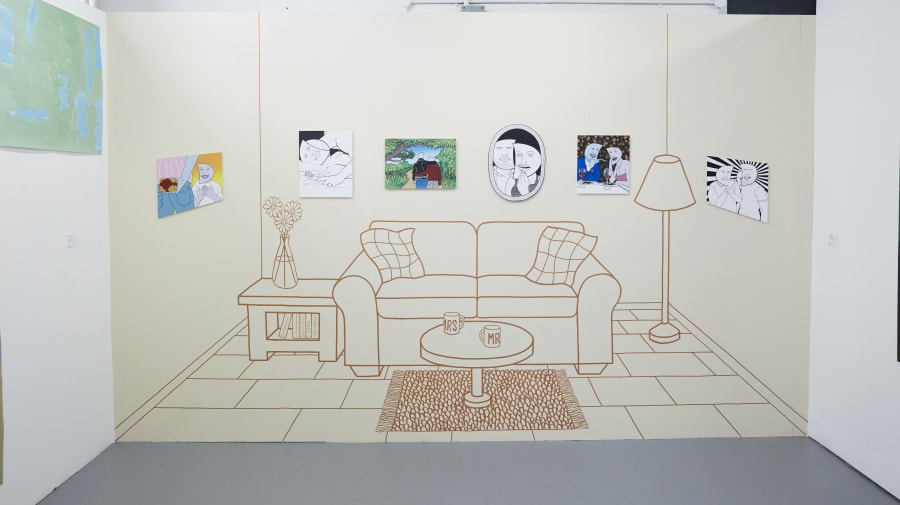
Moving in and out
Last updated:
11 September 2025

There is a lot to learn if this is your first time renting. This guide covers:
- what to do when you move in
- how to leave your property
- how to deal with common problems.
Moving in checklist
Moving in can be busy, but these early steps help protect your deposit when you move out.
Make an inventory
Record the condition of the property and any furniture.
Take photos of any property damage. This will help protect your deposit and any disputes when moving out.
Take meter readings
Record your gas, electricity and water meters on the first day.
This will help you if you need to dispute anything with the landlord. It also means you only pay for what you use
Set up utility accounts
Open new accounts for gas, electricity and water and put them in your name(s). This is your responsibility, not the landlord’s.
Get council tax exemption
Students on full-time courses do not have to pay council tax. You must tell the council that you are a full-time student.
If you don’t do this, the council will send you a bill to pay.
Check for a gas safety certificate
Your landlord must give you a copy of the gas safety certificate. It helps protect you from carbon monoxide poisoning risks (opens in new tab).
Check your deposit is protected
If your contract is an assured shorthold tenancy, your landlord must have tenancy deposit protection (opens in new tab). This is a legal requirement.
Your landlord must protect your deposit within 30 days and give you proof.
Consider contents insurance
We recommend you purchase contents insurance cover in case anything goes wrong.
GO.COMPARE contents insurance (opens in new tab) is one of the many suppliers in the insurance market.
Moving out checklist
Leaving your accommodation properly helps you ensure you get your full deposit back.
Remove all your belongings and rubbish
You must make sure to remove all your belongings, including any furniture you brought.
Clean the property. It needs to be cleaned to the same standard it was when you moved in.
Close your utility accounts
Take final readings of gas, electricity and water meters.
Close all your accounts with your utility companies. This includes gas, electricity, water, phone and internet.
Make sure to request a final bill from the suppliers.
Final inventory check and return keys
Take your own photos of the property before you leave. Attend an inventory check, if your landlord or agent arranges one.
Give back all keys once this is done. This will help with getting your deposit returned.
Keep in contact with your housemates
Make sure to exchange contact details with your housemates.
This will help with sorting out overdue bills and the deposit return.
Tell Royal Mail you’ve moved
Redirect any post to your new address.
Set up a post redirection with Royal Mail (opens in new tab)
Get your deposit back
Stay in touch with your landlord over the deposit return. Give them some time to check inventories, and make sure you provide proof that all utility bills have been paid.
Common deposit deductions include cleaning costs, inventory checking, damage to the property and unpaid rent or utilities. If your deposit is protected by a tenancy deposit scheme, you may need to raise a dispute if you and the landlord can’t come to an agreement.
Watch the video on how to take care of your deposit (opens in new tab)
Know your rights and responsibilities as a tenant
Even in a well-kept home, things can go wrong. We can provide support services and advice if you have accommodation issues.
If you have not rented before, you may not be familiar with the rights and responsibilities of tenants and landlords. Landlords must do certain repairs and tenants must tell the landlord when something goes wrong.
Shelter provide a good overview of what you can expect from your landlord (opens in new tab) and what your landlord will expect of you (opens in new tab).
How to handle common issues
Repairs and maintenance
If something breaks or stops working, tell your landlord. They are responsible for fixing most things.
You must report problems as soon as possible.
Mould and damp
Make sure your home well-ventilated and heated. If mould appears, let your landlord know as soon as possible.
Landlord entering without notice
Your landlord should give at least 24 hours’ notice before visiting the property.
Housemate wants to leave early (joint tenancy)
You’ll need to find a replacement and agree on it with your landlord. The tenancy agreement must be updated with an Assignment of Tenancy document.
All tenants want to leave early
You’ll need the landlord's permission. Check if your contract has a break clause to allow you to leave early. The break clause is usually 1 month's notice.
If there isn’t a break clause, you’ll need to find replacement tenants.
Pest infestation
If you find pests such as cockroaches, mice or bedbugs when you move in or during your tenancy, tell your landlord immediately and ask for help.
Deposit not returned
If your deposit is protected, raise a dispute through the Tenancy Deposit Scheme. If it’s not protected, you may need to take legal action.